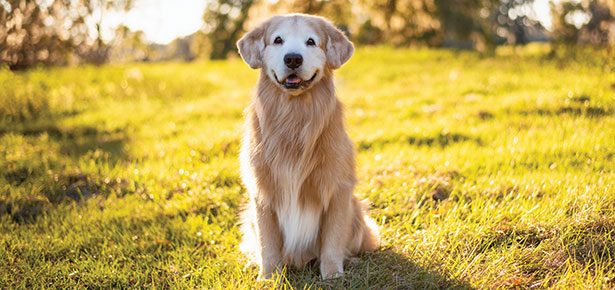

Is a Ketogenic Diet the Secret to Longevity in Dogs?
The keto proponents at Visionary Pet think so
A ketogenic diet is touted as one that can help you lose fat, lower your appetite, improve mental focus, and even treat epilepsy and help fight cancer. But what is a keto diet, exactly? And most importantly, is it right for your dog?
“Keto is a metabolic state in which your body switches from primarily burning glucose and carbohydrates to fat and ketones as fuel,” explains Paul Raybould, one of the self-professed “lifelong nutrition nerds” behind Visionary Pet, makers of the first commercially available ketogenic diet for dogs. “This way of eating typically involves consuming a low carbohydrate, moderate protein, and higher fat diet. When you do this, your body starts to increase breakdown of fat which produces ketones in our body and puts us into a state known as ketosis.” It’s this state of ketosis that confers the health benefits associated with a ketogenic diet.
“We searched high and low for a commercially available low carb, ketogenic dog food,” says Raybould, whose partner started Quest Nutrition, a powerhouse player in the world of human nutrition. “And you know what? We couldn’t find one. So, we created our own.”
The resulting keto dry dog food is high in fat and protein, and very low in digestible carbs (less than one gram per cup). It was inspired by several years of dog food nutrition research at their nonprofit, KetoPet Sanctuary, focused on improving canine health through nutrition.
Since 2014, KetoPet has rescued dozens of dogs from kill shelters and placed them on a ketogenic diet as a form of cancer therapy, coupled with other best-in-class cancer therapies. KetoPet found that a low carb, ketogenic diet could not only improve outcomes for dogs with cancer and other illnesses, but that it could also support optimal health and well-being for all dogs. In some cases, they found the effects of implementing a ketogenic diet for dogs to be nothing short of amazing. “While we don’t call it a cure, we’ve found that a ketogenic diet can be effective in improving outcomes when treating dogs with cancer,” says Raybould. “As well, our data supports the idea that a raw keto diet can lower blood glucose, improve insulin sensitivity, and reduce inflammation.”
Remarkably, 55 percent of the dogs who graduated from the KetoPet program—some of whom were given just weeks to live when they arrived at KetoPet—are still going for long walks, enjoying belly rubs, eating a raw keto diet, and experiencing a quality of life far beyond their original prognosis. “We now believe that a ketogenic diet is the optimal diet for all adult dogs,” says Raybould.
Read about our visit to the incredible KetoPet Sanctuary and the amazing results they are seeing tackling cancer by changing their dogs' diets.
Join the newsletter and never miss out on dog content again!
"*" indicates required fields
By clicking the arrow, you agree to our web Terms of Use and Privacy & Cookie Policy. Easy unsubscribe links are provided in every email.